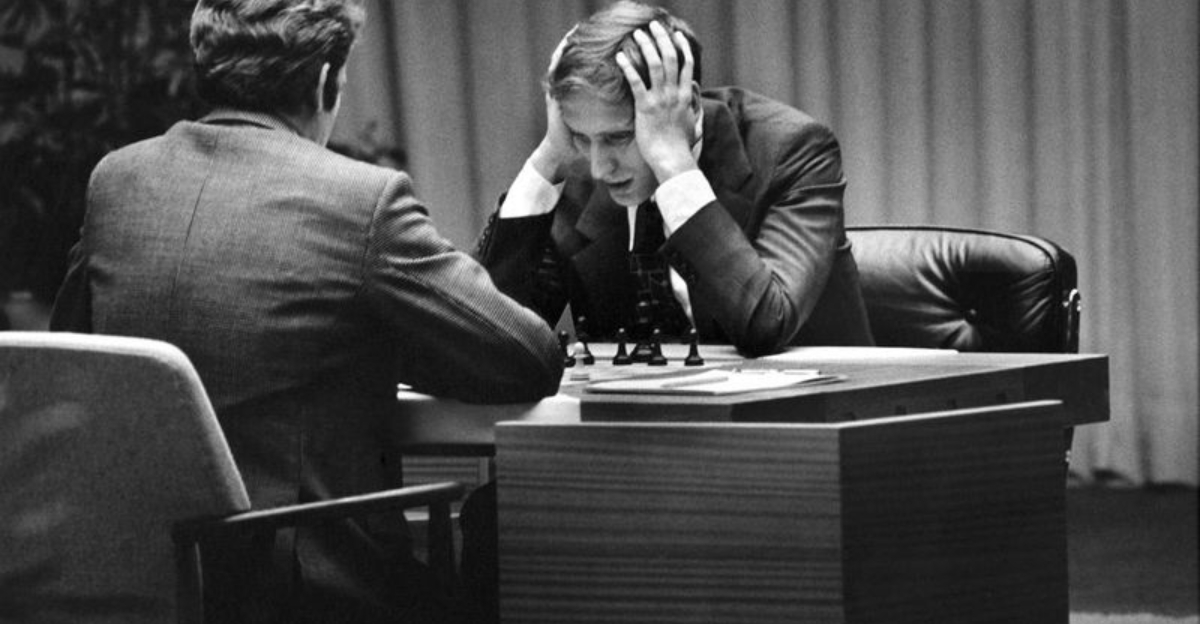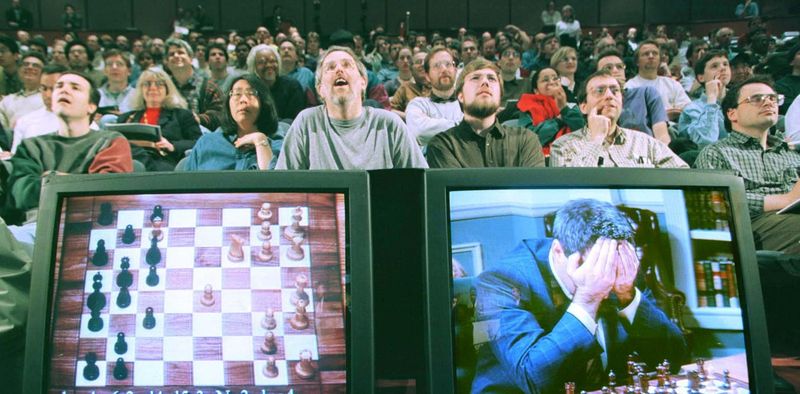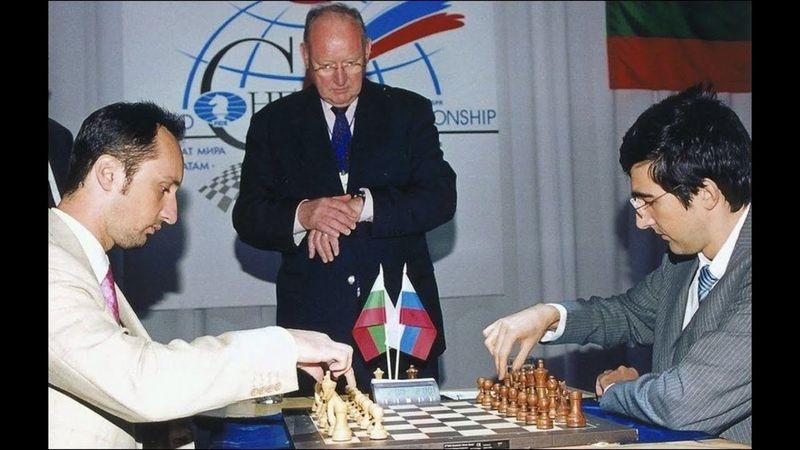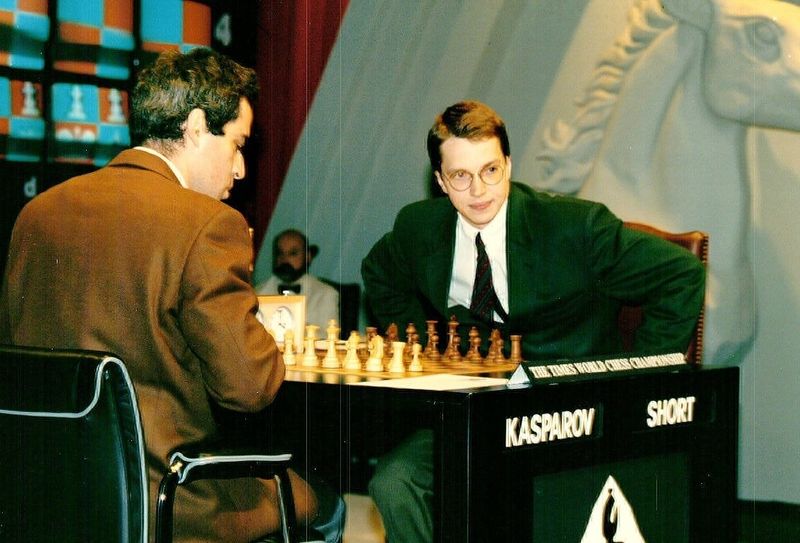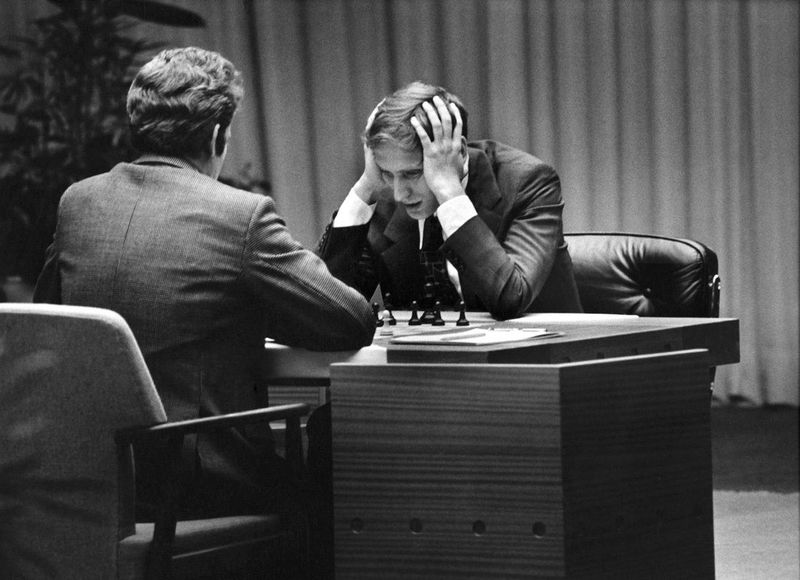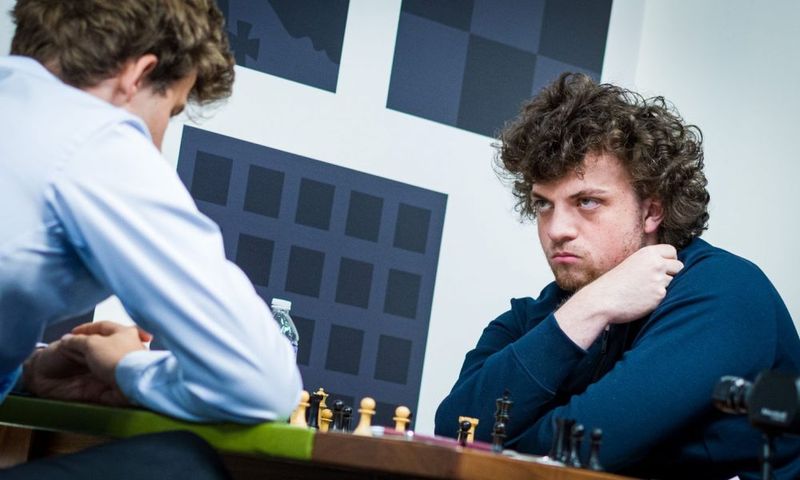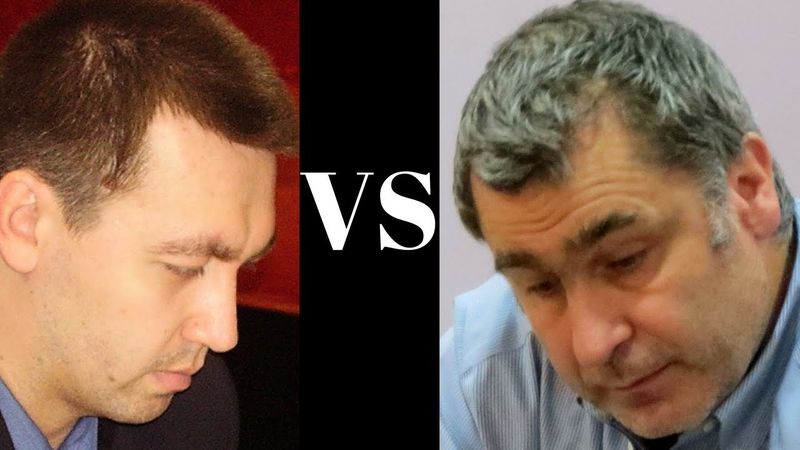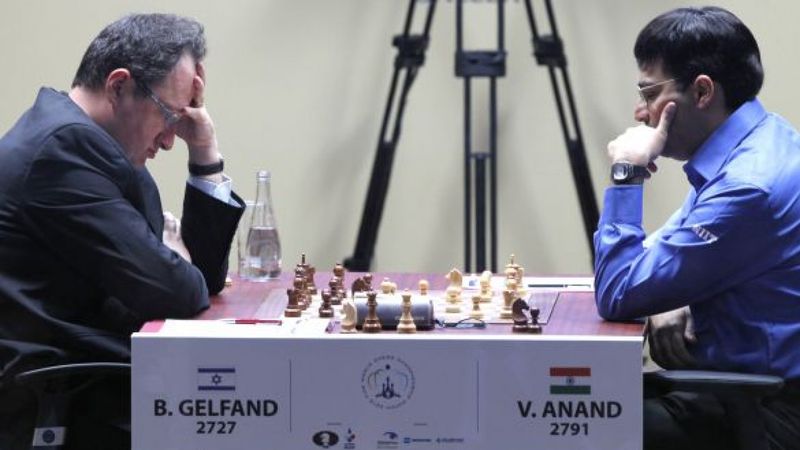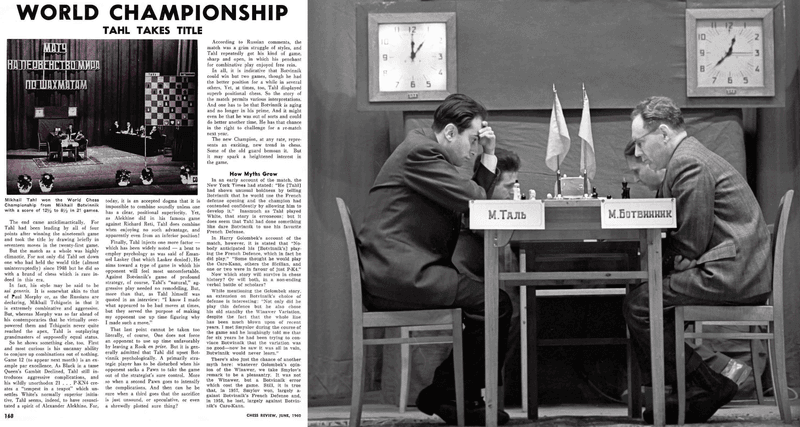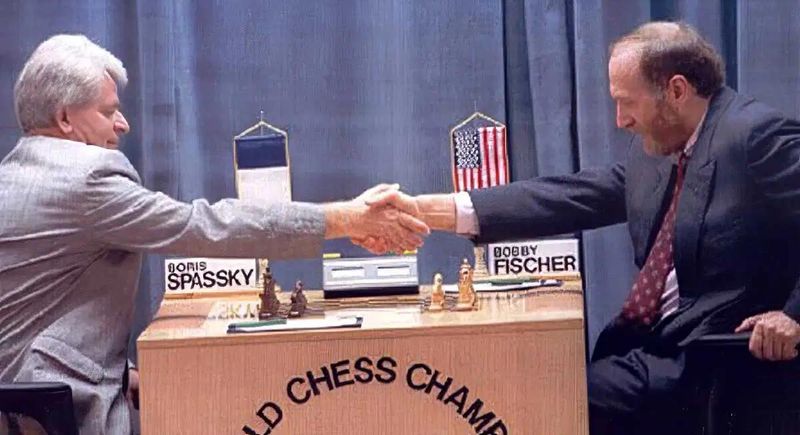Chess may look calm on the surface, but beneath the board lies a world of tension, mind games, and the occasional dramatic meltdown. These 10 matches pushed players—and sometimes entire nations—to the brink, proving that chess can be as wild as any contact sport.
1. Kasparov vs. Deep Blue – 1997 Rematch
In a groundbreaking 1997 rematch, Garry Kasparov faced off against IBM’s supercomputer Deep Blue, setting the stage for a historic clash between human intuition and machine precision. The tension reached a breaking point when Kasparov accused the machine of underhanded play, storming out of the game. His outburst marked the beginning of the AI era in chess, leaving the chess world in turmoil. Kasparov’s dramatic reaction signaled his deep frustration, while Deep Blue’s win remains a controversial milestone. The match raised provocative questions about the future relationship between humans and artificial intelligence.
2. Karpov vs. Kortchnoi – 1978 World Championship
The 1978 World Championship between Anatoly Karpov and Viktor Kortchnoi in Baguio stood out not just for its strategic gameplay, but also for its psychological antics. Karpov’s camp brought a hypnotist, while Kortchnoi countered with yogis to diffuse mental pressure. The atmosphere was electric, with accusations about blueberry yogurt deliveries adding to the chaos. Both players engaged in a mental duel as gripping as the chess itself. Amidst these distractions, Karpov secured the title. This match remains a bizarre chapter in chess history, highlighting how psychological tactics can rival even the fiercest chess moves.
3. Topalov vs. Kramnik – 2006 World Championship
The 2006 World Championship in Elista, Russia, between Veselin Topalov and Vladimir Kramnik took a controversial turn over bathroom breaks, earning the nickname “Toiletgate.” Topalov accused Kramnik of cheating during frequent visits to the restroom, sparking a scandal that would dominate headlines. The mistrust between the two players escalated into formal protests and eventual forfeits. The chessboard became an arena of suspicion, overshadowing the intense struggle for the title. This match stands as a testament to how off-board disputes can overshadow the intellectual rigor of chess, forever affecting the players’ reputations.
4. Nigel Short vs. Garry Kasparov – 1993
The 1993 match between Nigel Short and Garry Kasparov in London was more than just a standoff of chess skills; it was a spectacle of personal drama. Kasparov’s victory in just 20 moves in one game left Short reeling, his mental fortitude visibly crumbling under the pressure. The British press both rallied behind and mocked their champion, turning the event into a media circus. Short’s struggles became a public fascination. Despite the humiliation, he persevered, but the match cemented Kasparov’s dominance and reminded the world of the unyielding pressures in top-level chess.
5. Fischer vs. Spassky – 1972 World Championship
The 1972 World Championship in Reykjavík was a high-stakes contest not just of chess, but of ideologies. An intense rivalry brewed between Bobby Fischer and Boris Spassky, symbolic of the Cold War tension. Fischer’s unpredictability shone through as he forfeited game 2 and made constant complaints about cameras. His behavior brought geopolitics onto the chessboard. Spassky’s team even suspected espionage, fearing Fischer’s chair was bugged. Amidst political scrutiny, Fischer’s erratic tactics brought chaos but ultimately led him to victory. This match remains a historic symbol of chess as a battleground of intellect and political power.
6. Carlsen vs. Niemann – 2022
In a 2022 clash that shook the chess world, Magnus Carlsen’s unexpected defeat to Hans Niemann at the Sinquefield Cup was only the beginning. What followed was an explosive cheating scandal, with Carlsen withdrawing mid-tournament and making cryptic accusations against Niemann. The drama extended to online platforms, resulting in lawsuits and global debate over integrity in chess. This episode highlighted the sport’s vulnerability in the digital age. Questions about fair play and trust emerged, leaving a lasting impact on the chess community. The match remains a defining moment in the modern chess landscape.
7. Ivanchuk vs. Kamsky – 1991 Candidates Match
Vassily Ivanchuk’s passionate nature was on full display during the 1991 Candidates Match against Gata Kamsky. After a pivotal loss, Ivanchuk reportedly kicked a wall in frustration, injuring his foot—a testament to the emotional intensity of the match. Known for his volatility, Ivanchuk’s reaction was not entirely unexpected. His unpredictable temperament added a layer of unpredictability to the already high-stakes encounter. Despite the setback, the match highlighted the thin line between brilliance and emotional tumult in chess, with Ivanchuk’s talent often overshadowed by his fiery disposition.
8. Anand vs. Gelfand – 2012 World Championship
The 2012 World Championship in Moscow featuring Viswanathan Anand and Boris Gelfand took an unexpected turn with one fateful move. In game 8, Gelfand made such a glaring blunder that commentators gasped, dubbing it a “brain freeze.” The mistake was a turning point, giving Anand the momentum needed to retain his title. Despite the error, Gelfand fought valiantly, demonstrating the resilience inherent in top-tier chess. This match showcased how a single lapse in judgment could alter the course of a championship, leaving an indelible mark on both players’ legacies.
9. Tal vs. Botvinnik – 1960 World Championship
Mikhail Tal’s revolutionary approach defined the 1960 World Championship against Mikhail Botvinnik. Tal’s daring, sacrificial style upended classical chess norms, overwhelming the methodical Botvinnik. The match was a clash of philosophies, with Tal’s bold moves creating chaos on the board. His success challenged what was considered conventionally “correct” in chess strategy, sparking debates and inspiring future generations. This encounter didn’t just crown a new champion; it transformed the way chess was perceived and played, making it memorable not only for its outcomes but for its impact on the game’s evolution.
10. Bobby Fischer vs. Boris Spassky – 1992 Rematch
After two decades, Bobby Fischer and Boris Spassky met again for a 1992 rematch in Yugoslavia, defying U.S. sanctions. Fischer, known for his disdain for authority, famously spat on an embargo order and played regardless. His defiance turned the match into an international spectacle, with Fischer prevailing once more. The game was as much about politics as it was about chess, with the U.S. issuing a warrant for Fischer’s arrest. This encounter highlighted Fischer’s rebellious spirit, marking a chaotic chapter in chess history where political boundaries were as pivotal as the moves on the board.
